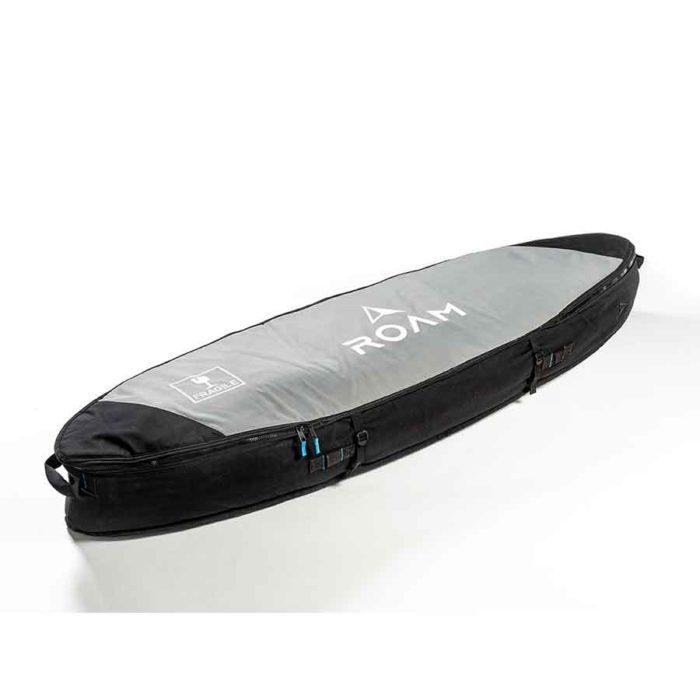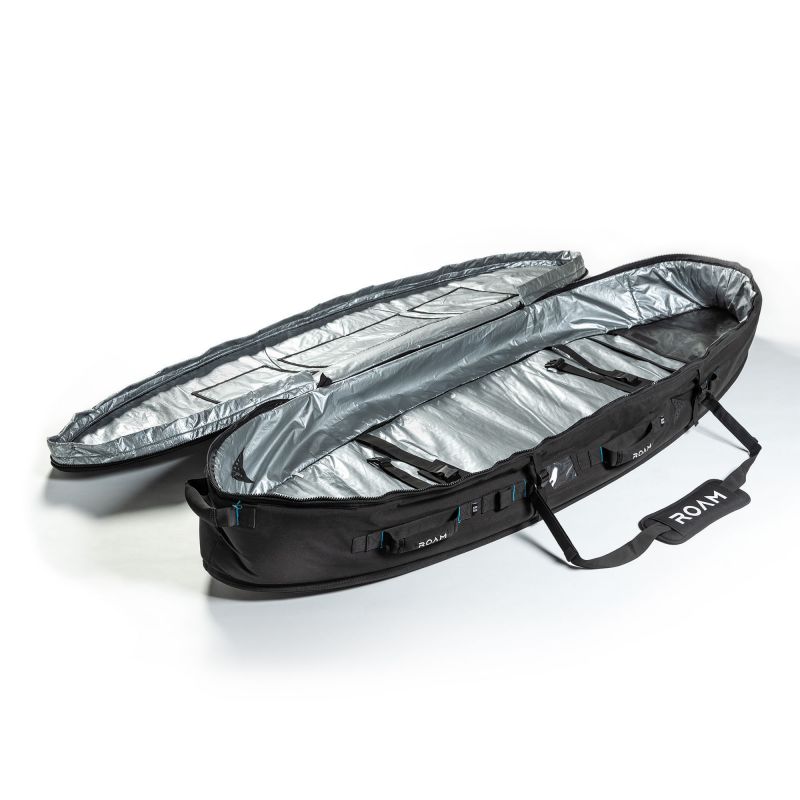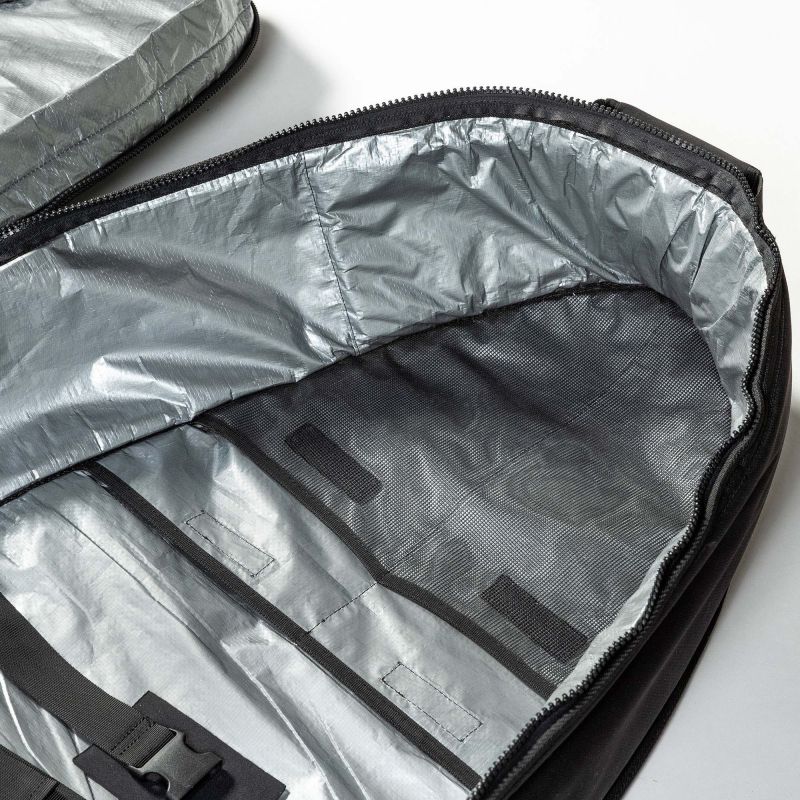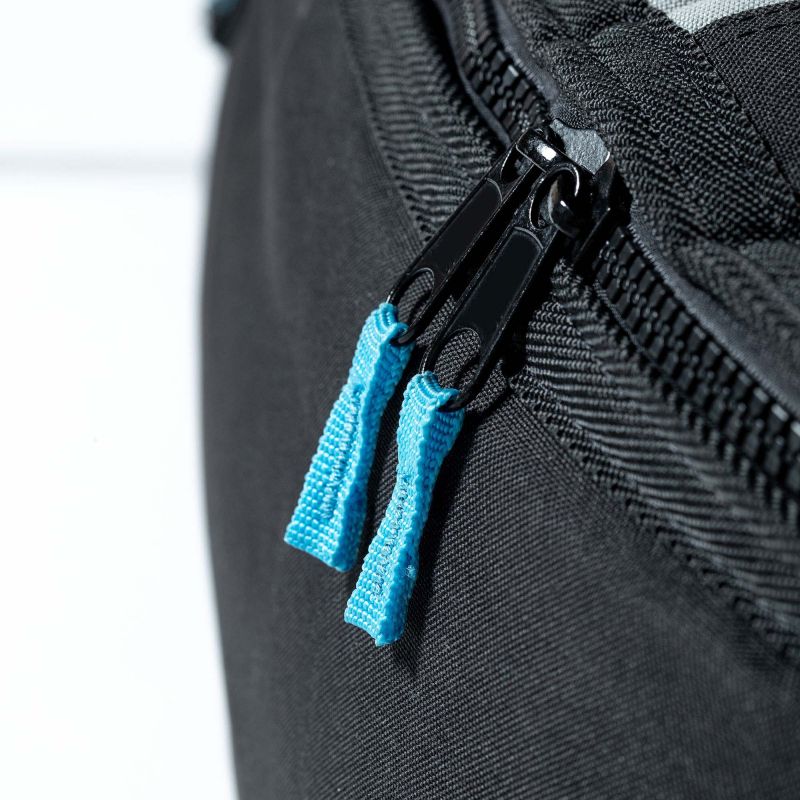Description
Designed with utilitarian simplicity this is a bag with many hidden features; everything you need and nothing you don’t. Externally it is very simple – hardwearing 600D nylon and webbing over 10mm high density padding with reinforced sidewalls and additional nose and tail protection. There are 2 grab handles at the nose and tail plus 2 padded carry handles on the top and slightly forward for dragging the bag. The shoulder strap is buckle free and removable plus there are 4 utility loops for maximum securing. Inside are securing straps and inlays for keeping your boards separate, plus 7 internal pockets for surf essentials like wax. The zippers are heavy duty, corrosion free plastic moulded zips and zip pulls.
This is understated design; pure function and practicality when you need it most. Designed to accommodate 3-4 boards in sizes up to 8’0 or 2 boards for 8’0 plus. The bags are cut long to allow for extra padding or boards packed inside day bags.







